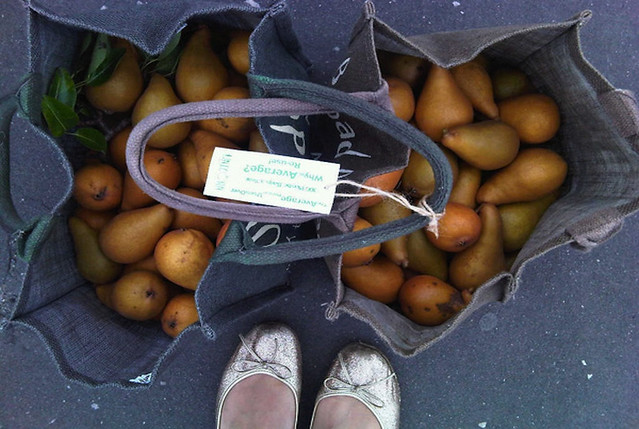The following guest post is by Farida Vis from the Everyday Growing Cultures research project. The project looks at the potentially transformative effect of bringing together the food growing and open data communities.
Those supporting the government’s open data agenda highlight the business case for open data, an economic argument about its moneysaving potential, along with the suggestion that it will lead to better-informed citizens. All of these claims require close and critical examination. If money is saved, who benefits and makes money from these innovations? How exactly do citizens know about and become better informed through open data? Why should they care? Some within the wide and heterogeneous open data ‘movement’ subsequently point to the importance of ‘really useful’ data, suggesting citizens might care and become better informed if open data was seen as useful in their daily lives.
Our project, “Everyday Growing Cultures”, addresses these issues by focusing on two distinct yet connected communities: allotment, growing communities (plot holders; allotment societies; those waiting for plots; allotment governing bodies) and the open data community (open data activists; developers; local government; data journalists). Allotment and open data communities may initially seem unconnected, but they share many concerns: around ideas of knowledge sharing, exchange, collaboration, ‘the commons’, and access to shared resources (digital and land).
We believe there is a potentially transformative value in connecting these two currently disparate communities. Bringing them together could build stronger, more active communities, benefit local economies and improve environmental sustainability and food security. We focus on the current allotment waiting list crisis and huge interest in growing your own, to investigate the value that could be brought into people’s lives through opening up local government data on allotments. Moreover, we are interested in facilitating citizen-led solutions to this crisis by identifying and mapping vacant land for the purpose of growing food.
Our research is based on the UK cities of Sheffield and Manchester, which both have thriving open data and food growing communities. Keeping in mind the different aspects of the open data agenda – the economic dimension, its claimed contribution to a better informed citizenry – along with the methods through which open data is practiced, we are using the allotment case and increased interest in food growing to ask:
- What does digital engagement and transformation look like within these communities?
- How can these communities further the national open data agenda so that it benefits citizens?
- How can a more widely adopted and enacted open data strategy benefit local economies?
- If unsuccessful in these aspects, what might open data’s unintended consequences look like?
- How can we think of forms of resistance, mobilisation of local histories and heritage identities?
- How can we rethink received ideas of participation and enacting citizenship in light of these?
Since mid-February 2013, in partnership with Open Data Manchester, The Kindling Trust and Grow Sheffield, we have run a number of events with growing communities in Manchester and Sheffield, to identify potential food growing spaces. We have talked to local councils about taking some of our ideas forward and how this might take place. We have requested allotment data through the Freedom of Information Act and looked at how council websites provide information to potential allotment plot holders. We are in the process of surveying people on waiting lists and have made a documentary film highlighting these important issues.
Join the Everyday Growing Cultures team in Sheffield on 23 July to discuss and explore these issues with key partners and stakeholders, including leading UK allotment expert Professor David Crouch. As part of the event, the award winning feature documentary, Grown in Detroit, will be screened. Before that our own project documentary film will be shown and the filmmakers (Erinma Ochu and Caroline Ward) will be there to answer your questions!
The event is free to attend, but registration is required. Please register here: Eventbrite information. Please check the website for further details.
We will also present work from the project at these upcoming events:
Smart Towns event in Halifax in September.
Everyday Growing Cultures film screening at Dig the City festival in Manchester (3-11 August).
This post is by a guest poster. If you would like to write something for the Open Knowledge Foundation blog, please see the submissions page.









